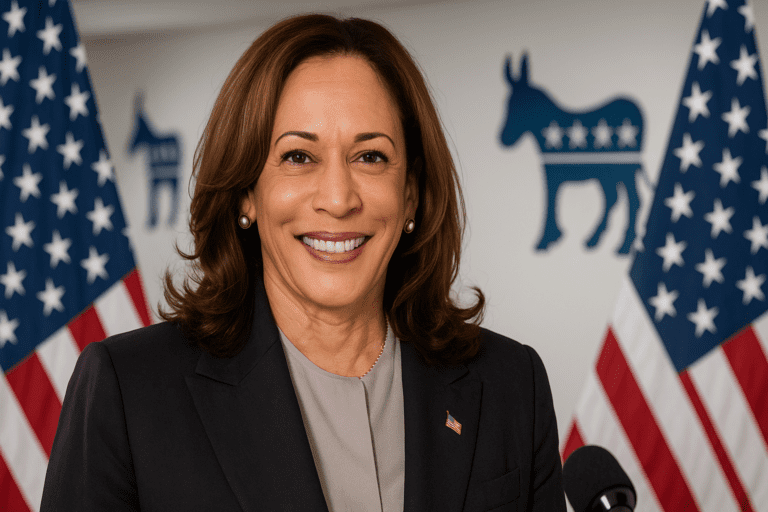In a landmark moment for U.S. politics, President Joe Biden officially announced that he would not seek re-election in 2024, paving the way for Vice President Kamala Harris to assume the role of the Democratic Party’s frontrunner. This decision, which had been anticipated for some time, marks a significant shift in leadership and sets the stage for an unprecedented campaign, led by a candidate who has already made history in numerous ways.
Biden’s Departure: A Call for New Leadership
In his announcement, Biden expressed a deep sense of purpose, citing the need for fresh leadership to address the country’s rapidly changing political and social landscape. “It’s time for a new direction,” he said, reaffirming his belief in Harris as the right person to lead the nation forward. His decision follows four years of managing the nation through intense challenges, including a global pandemic, climate crises, foreign tensions, and deep political division. While many Democrats praised Biden for his steady leadership, there was a palpable sense of anticipation for the next chapter in American politics.
Kamala Harris: Poised to Break More Barriers
Harris, already a historic figure as the first woman, first Black woman, and first South Asian American to hold the office of Vice President, now stands poised to break even more barriers. Her ascension to the Democratic nomination would make her the first woman of color to head a major party’s presidential ticket. The announcement of Biden’s exit sparked a tidal wave of support for Harris, with Democratic delegates quickly rallying behind her.
In an extraordinary display of backing, Harris shattered fundraising records, raising an unprecedented $81 million within the first 24 hours after Biden’s announcement. The extraordinary donation surge reflects not only the enthusiasm of her supporters but also the broad coalition of Democrats eager for her leadership.
A Platform Focused on Justice, Equity, and Progress
Harris enters the 2024 race with a campaign rooted in the core values of justice, equity, and inclusive governance. She has been a strong advocate for criminal justice reform, climate change action, reproductive rights, and economic equality. These issues will likely serve as the foundation of her platform as she looks to unite the Democratic Party, which has seen increasing tension between centrist and progressive factions in recent years.
In her first remarks after Biden’s announcement, Harris conveyed a vision for the future of the nation, stating, “We stand at the crossroads of history, and we have the chance to move forward with vision and courage. Together, we can build a fairer, more just, and more inclusive America.” Her message resonated with a diverse electorate, many of whom are eager for leadership that reflects the country’s shifting demographics and evolving values.
Challenges and the Road Ahead
Despite the wave of support, Harris faces significant hurdles in her path to the White House. The Democratic primary, though largely decided, is still a platform for debate and refinement of her policy positions. Beyond that, she will need to confront the rising opposition from Republicans, who are already gearing up for a competitive race. Her ability to unify the Democratic Party’s progressive wing with more moderate factions will be tested as the general election campaign unfolds.
Key to her strategy will be mobilizing voters, especially younger voters, women, and communities of color—groups where Harris has proven particularly popular. Her campaign team is already targeting key battleground states and is preparing for an aggressive push to expand the electoral map.
Kamala Harris’s presidential campaign marks a critical moment in American history, as the Democratic Party prepares to nominate a candidate who embodies both the promise of change and the reality of a new era in U.S. politics. The race for the White House has entered a new and electrifying phase, one that holds the potential to reshape the nation’s future leadership.


